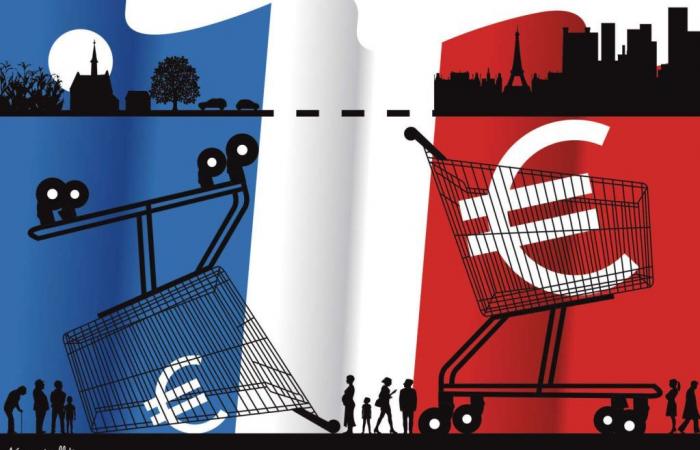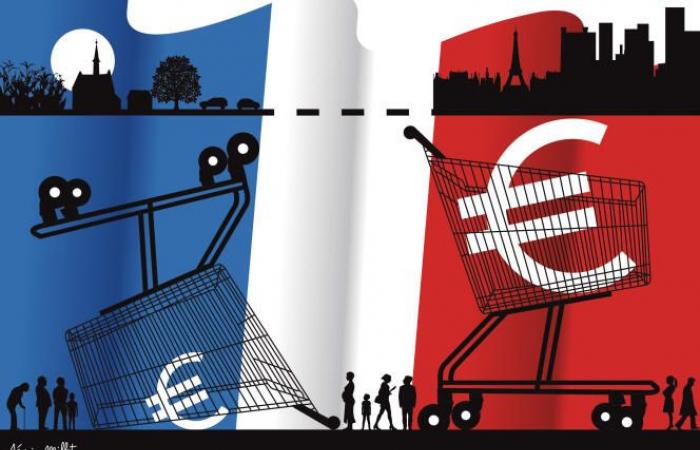It is a paradox that surprises economists, particularly those who observe France from abroad. Statistically, the country has resisted the shocks of the Covid-19 pandemic and inflation rather better than its European neighbors, but social anger seems deeper there. Purchasing power, after redistribution of social assistance and adjusted for inflation, has increased by 6.6% in France since the end of 2019, according to calculations by the firm Oxford Economics.
Read the decryption | Article reserved for our subscribers Inflation is stabilizing but its effects persist, in particular with a sharp decline in consumption
Add to your selections
In comparison, Germany (0%), Italy (1.7%), the United Kingdom (3.7%) and Spain (5%) all performed less well over the same period. “If the election was purely about the economy, Emmanuel Macron would do much betterjudges the economist Daniel Kral, who carried out these calculations. Without government intervention, the French would have been much poorer.”
Problem: these data are misleading, replies Mathieu Plane, economist and deputy director of the French Observatory of Economic Conditions (OFCE). “From a macroeconomic point of view, purchasing power has indeed continued to increase over the period, much during the pandemic, before virtually stagnating in 2022 and 2023. But these data cover very different realities depending on the person.” In particular, employees who live in peri-urban and rural areas, and who already had a job before the pandemic, have objectively lost a lot of purchasing power.
Inflation shock
To explain this paradox, we must delve into the thicket of recent statistics. The first level of analysis concerns inflation. It rose by 2.1% over twelve months in June, according to data published by INSEE on Friday, June 28. The rate, slightly down after 2.3% in May, confirms that the surge in prices has now calmed down. In total, since January 2021, taking European data harmonized by Eurostat, prices have risen in France by 17%, which is the second lowest increase in the eurozone, ahead of Finland. Spain (19%), Italy (20%) and Germany (21%) have all been slightly more affected by the phenomenon.
The intervention of the French government during the recent crises helped to soften the shock, in particular with the tariff shield on energy (which is being gradually withdrawn). “This policy has helped to reduce the second-round effects”, explains Mr. Kral. Understand: having been (a little) less violently affected by the increase in bills, companies had less need to pass on their rising prices.
You have 56.77% of this article left to read. The rest is reserved for subscribers.







